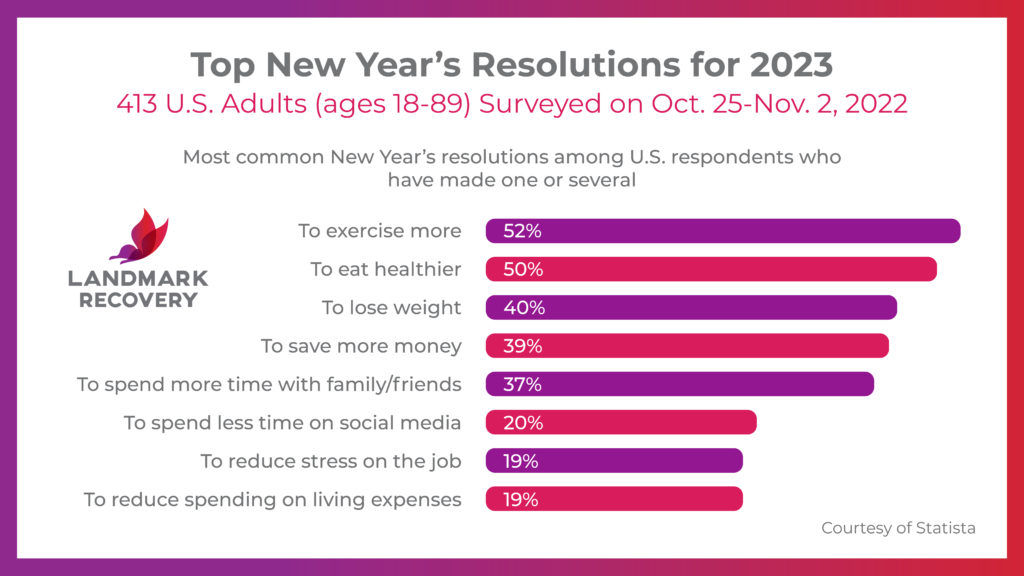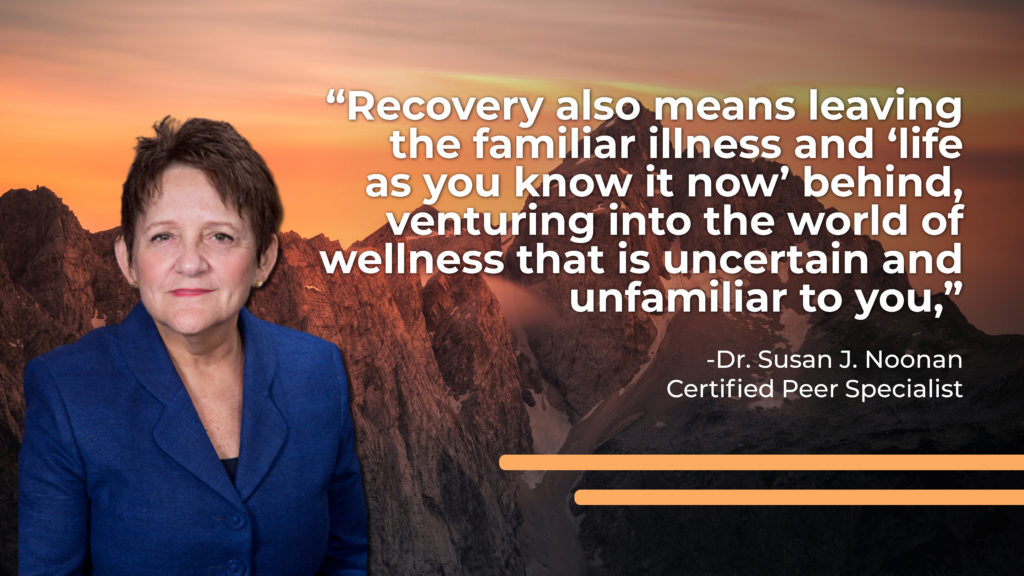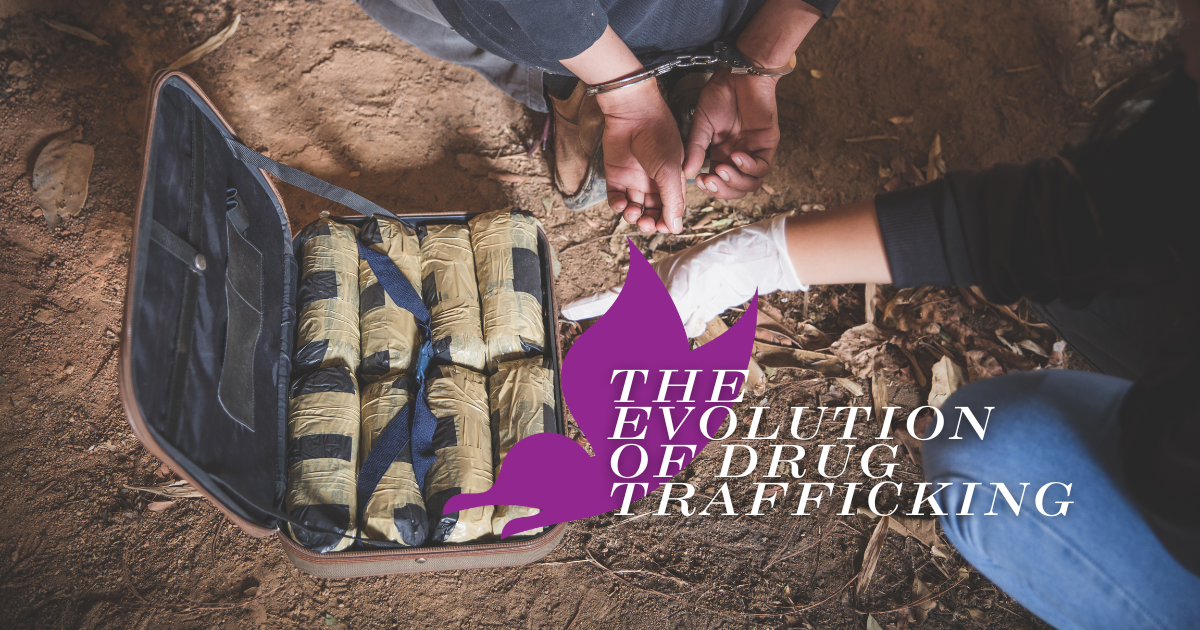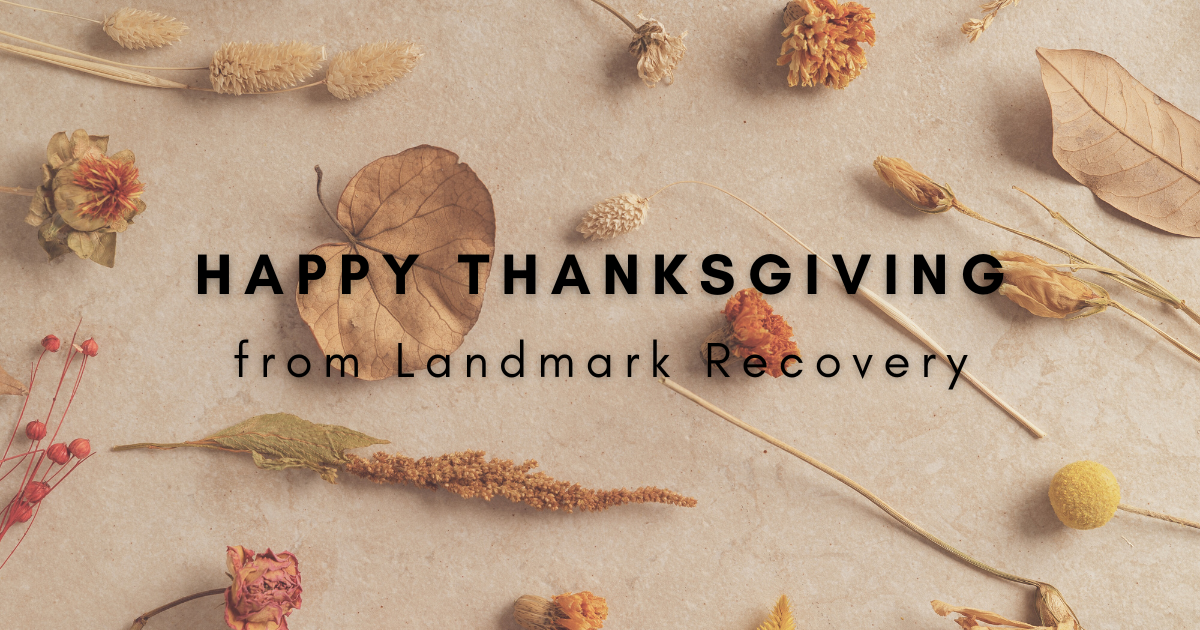What do failed New Year’s resolutions say about society?
The most failed New Year’s resolutions uncover a lot about where our society is, but can also offer insight into where you are in your life. Every year, millions of Americans make New Year’s resolutions, hoping to improve their mental, physical and financial fitness. After a season of overindulgence in festive food and drinking (or drug use) at holiday parties, people have the tendency to make vows to eat better, exercise more and spend less money.
@landmarkrecovery #greenscreenvideo Sobriety first, always. #varietyinterview #whatsyourlegacy #jamieleecurtiscrew #celebrityinteractions #jamiecurtis #breakinggenerationalcycle
Motivated individuals rush to the gym, attempt 30-day challenges like Dry January and try out popular eating trends like Whole30. We see Google searches spike for terms like “drinking alcohol,” “eating poorly” and “how to lose weight.” This means most Americans are focused on their health, appearance and bank accounts.
The most popular New Year’s resolutions
According to the Statista Global Consumer Survey, here were the eight most popular New Year’s resolutions in the U.S. in 2022:
- To exercise more (52%)
- To eat healthier (50%)
- To lose weight (40%)
- To save more money (39%)
- To spend more time with family/friends (37%)
- To spend less time on social media (20%)
- To reduce stress on the job (19%)
- To reduce spending on living expenses (19%)
If one of your personal goals for the new year is to give up drugs and alcohol, especially if you struggle with addiction, you’re not alone. However, it’s important to consider how difficult it is to maintain long-term sobriety, let alone resolve to quit entirely on January 1. In fact, it’s more common for people to give up on their New Year’s resolution altogether than it is for them to make good on their plans for a full calendar year.
According to a 2016 Society for Personality and Social Psychology study, 41% of Americans make New Year’s resolutions but only 9% feel they were successful in keeping them. That means nearly seven out of every eight Americans actually accomplish their resolution goals. So what are the most failed New Year’s resolutions?
What are the most broken New Year’s resolutions?
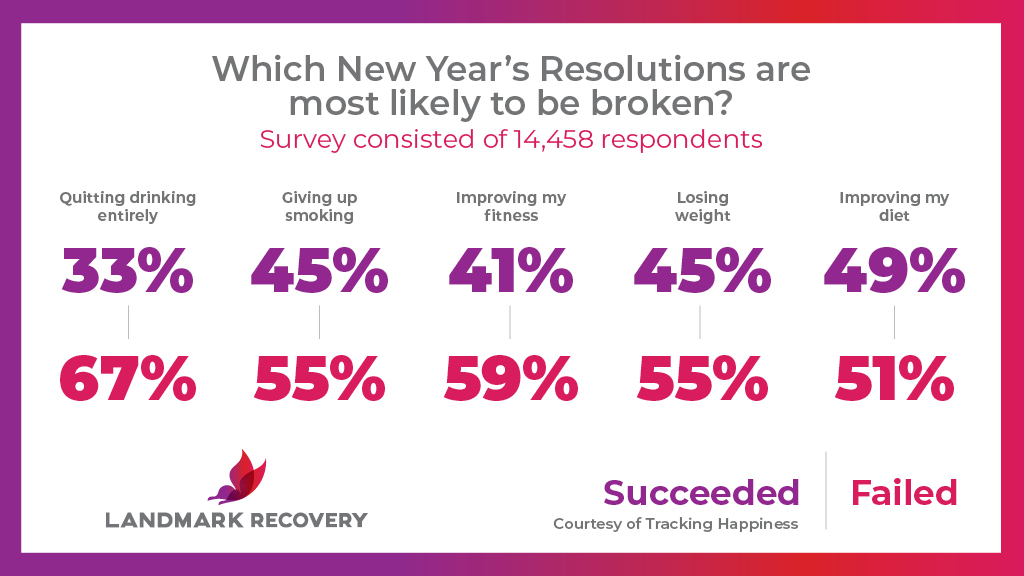
Tracking Happiness released a new survey of the top five most broken New Year’s resolutions:
- Quitting drinking entirely (staying sober)
- Doing more exercise or improving my fitness
- Giving up smoking
- Losing weight
- Improving my diet
As you can see, it’s not uncommon for New Year’s resolutions to end up unfulfilled, often in just a few months or even weeks. However, some broken resolutions can have unintended consequences, especially if it’s not your first attempt. It’s not surprising to see “quit drinking” as the most failed New Year’s resolution. Most American adults drink alcohol. Drinking is seen as a social norm, a way to increase fun and deal with stress.
If you’re somebody who resolved to stop drinking or using drugs but couldn’t resist cravings to use these substances, there’s a chance you may have an addiction. Resolving to stay sober throughout the year can be much more difficult than dieting or saving more money. Addiction is a chronic disease that requires specialized treatment, behavioral changes and a new approach to emotional trauma and stress to overcome.
Even after detoxing, completing a residential treatment program, regularly attending 12-step meetings, or a combination of treatment options, choosing long-term recovery is a lifelong challenge. It’s vital for people with addictions to be mindful of their triggers and continue to develop healthy coping skills to manage anxiety and other negative emotions without turning to drugs or alcohol.
Why do so many New Year’s resolutions fail?
A great answer to why New Year’s resolutions fail can be found in a 2019 Forbes article written by Senior Contributor Kathy Caprino, who offered three main reasons:
- Your consciousness needs to change before your behavior can
- You don’t have an accountability structure to help you sustain change
- You fear and are completely resistant to achieving this big goal and you won’t let yourself
“Sadly, until we are able to heal what has hurt us from the past, we’ll continue to perpetuate the very challenges that we most want to run from,” Caprino writes, citing her colleague Janneta Bohlander, a licensed therapist with over 20 years of experience.
Consciousness change
Interestingly enough, Caprino’s list almost mirrors what many in the recovery community believe are the reasons people with addictions struggle to meet their goals of long-term recovery. Many people with addictions have a family history of substance use problems. Others have unresolved trauma that they’ve masked with drugs and alcohol. Until they trace back the roots of their substance use, or the “consciousness” Caprino describes, it can be difficult to truly overcome addiction.
A lack of accountability and support network
The stress of unstable living situations can hinder a person’s attempt to maintain their long-term recovery goals. Home is where you practice and continue to develop healthy life skills you pick up during inpatient rehab, outpatient treatment or sober living. However, if you still have people in your life who encourage you to drink alcohol or drugs, you risk undercutting your own progress and increasing your likelihood of relapse. Experts say it’s best to change your environment and strengthen your peer support network to have a successful recovery journey.
The fear of recovery
“Recovery also means leaving the familiar illness and ‘life as you know it now’ behind, venturing into the world of wellness that is uncertain and unfamiliar to you,” wrote Dr. Susan J. Noonan, a Certified Peer Specialist, in a 2016 Psychology Today article.
After months, days and even years of repeated substance use, many people have their identities tied up in their addiction. When they get treatment and their symptoms improve or go away, some people might feel like there’s a hole in their life that was once filled by drugs or alcohol. Some people might not remember what they were like before they got better, wrote Noonan. While these are normal feelings, you’ll “adjust to the idea of feeling better,” if long-term sobriety is your goal.
@landmarkrecovery And thats a fact! #overcomeyourmind #thisislivinglife #youdobelong #learningtoliveagain #learningtolive #overcominglimitingbeliefs
How addiction treatment can help you stay sober this year
You don’t need a New Year’s resolution to seek addiction treatment. You can give up drugs and alcohol any day of the year and resolve daily to achieve this goal for the rest of your life. Keep in mind, however, that long-term recovery takes work and commitment.
If you or a loved one wants support to overcome an addiction, you could benefit from medical detox and behavioral therapy at a licensed treatment center. Call 888-448-0302 to speak to a recovery specialist 24/7 on a confidential phone line. Click here to find a treatment center near you.

Choose Recovery Over Addiction
We're here 24/7 to help you get the care you need to live life on your terms, without drugs or alcohol. Talk to our recovery specialists today and learn about our integrated treatment programs.


